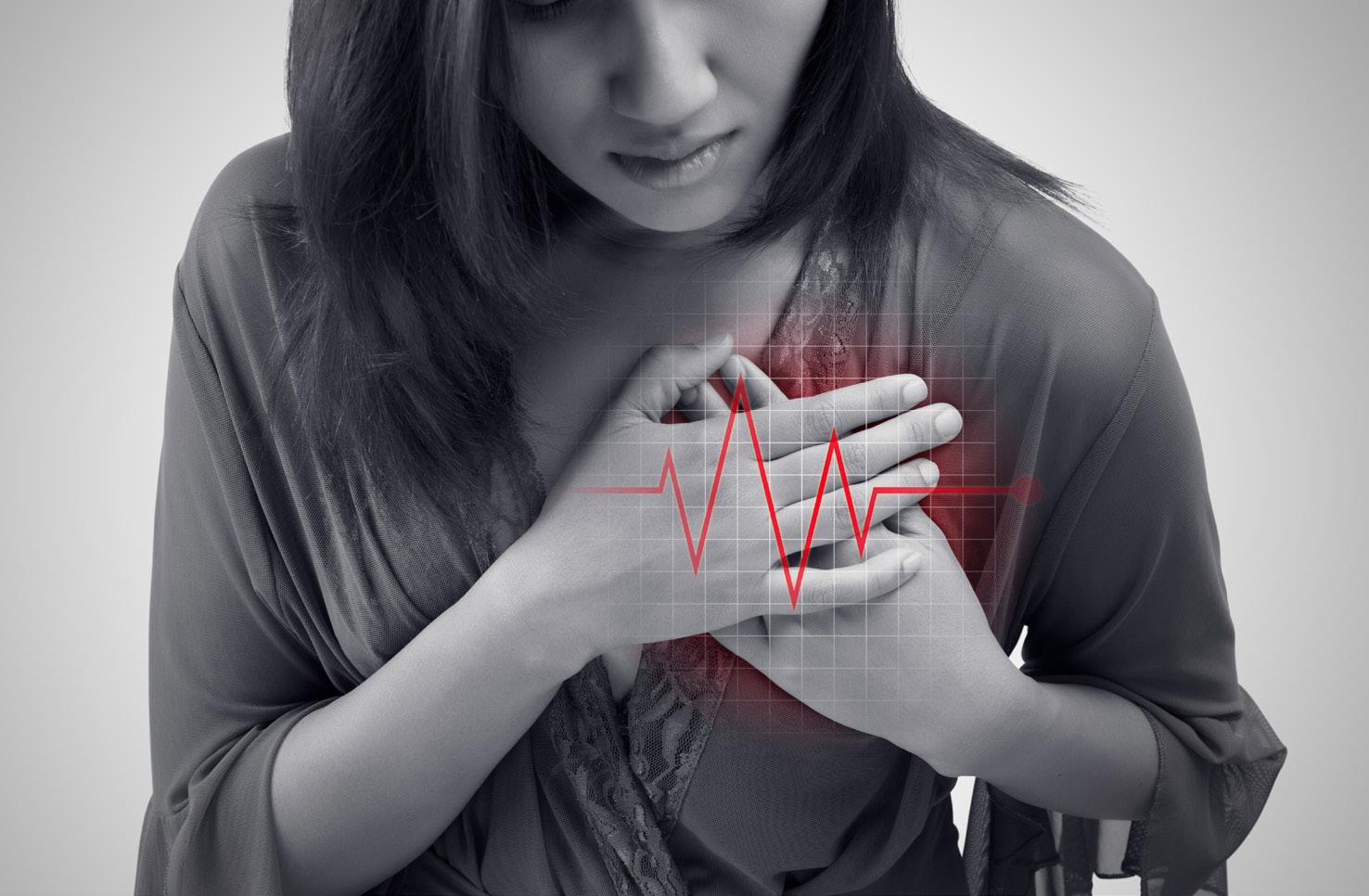
2 minute read
WHY WOMEN MIGHT NOT KNOW THEY’RE HAVING A HEART ATTACK
If you’re a woman, you might not experience the acute chest pain normally associated with a heart attack.
“Getting immediate, appropriate care from your closest emergency room is the single most important thing you can do to lessen the damage of a heart attack,” says Dr Paul Timp, a GP at Mediclinic Morningside. But women sometimes experience atypical symptoms – and either ignore the issue or attribute a heart attack to heartburn or anxiety.
“Heart attack symptoms may show up in different ways and can depend on a number of factors, such as whether you’re a man or a woman, what type of heart disease you have and how old you are,” Dr Timp adds.
According to the Heart and Stroke Foundation South Africa, in some cases, mostly women or people with diabetes, a heart attack can occur without any of the classic Hollywood chest pain. If you are over 40 or have a family history of heart attack or stroke, Dr Timp recommends an annual fasting lipogram to measure the exact amount of different types of cholesterol (and not just the total amount) you have. A lipogram measures your total cholesterol, high-density lipoprotein (HDL), low-density lipoprotein (LDL) and triglyceride levels. In general, high levels of HDL and low levels of LDL help reduce the risk of heart disease.

WHAT IS A HEART ATTACK?
A heart attack is a medical emergency in which the supply of blood to the heart becomes blocked, often as the result of a blood clot. Other terms used for a heart attack include myocardial infarction, cardiac infarction, and coronary thrombosis. An infarction is when the blood supply to an area is cut off, and the tissue in that area dies. A heart attack is often confused with cardiac arrest. While they are both medical emergencies, a heart attack is the blockage of an artery leading to the heart, and a cardiac arrest involves the heart stopping the pumping of blood around the body. Although a heart attack can lead to cardiac arrest, not everyone who suffers a heart attack will experience cardiac arrest or need CPR.
HOW DO YOU KNOW (FOR SURE) IF YOU’VE HAD A HEART ATTACK?
Once you’re in the emergency room at the hospital, doctors will run an electrocardiogram (ECG). This test records the electrical activity of your heart via electrodes attached to your skin. Because an injured heart muscle doesn’t conduct electrical impulses normally, the ECG may show that a heart attack has occurred or is in progress.
In addition, because certain heart proteins leak into your blood after a heart attack, a blood test will determine the presence of these enzymes.










